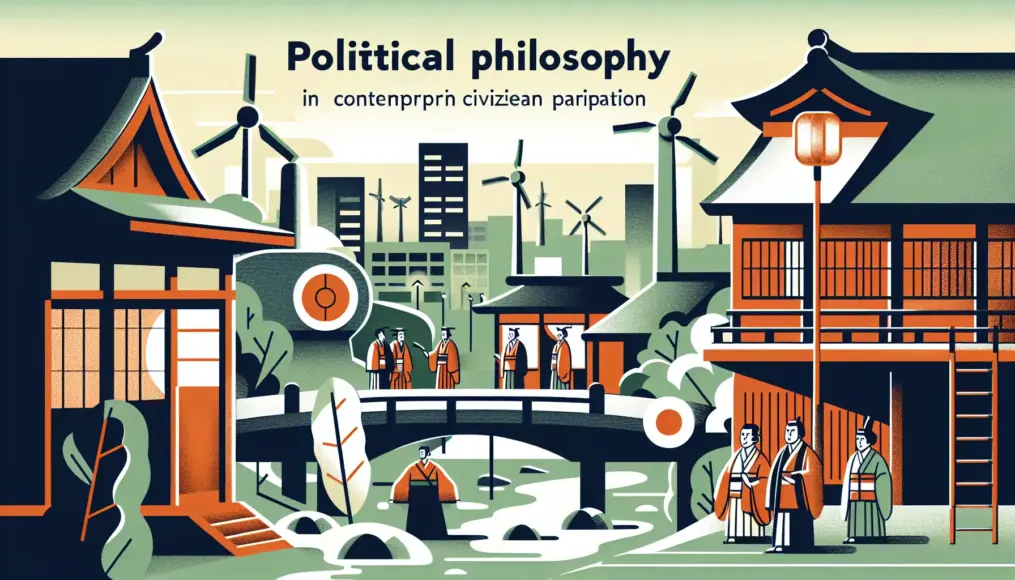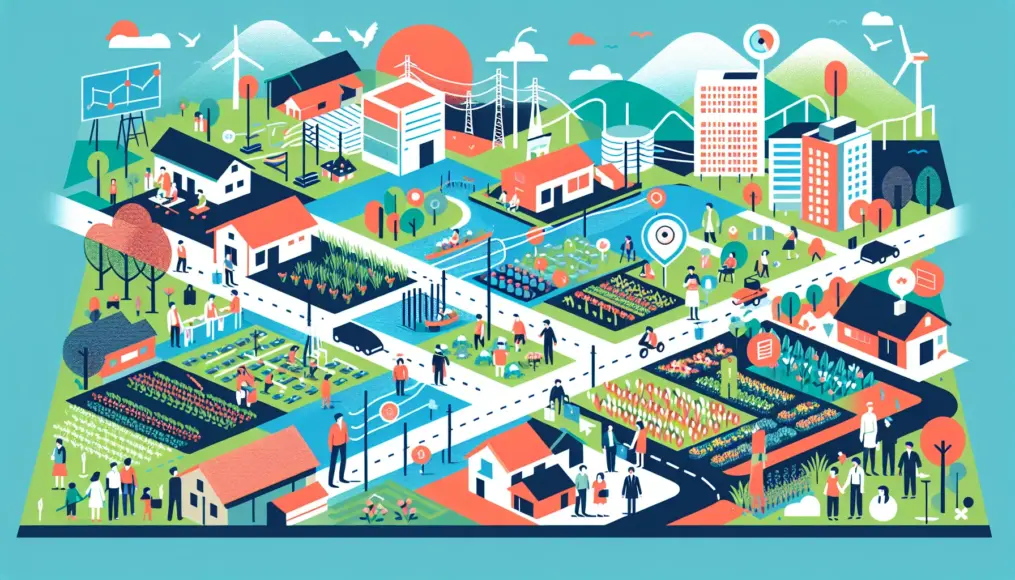When we think about politics and society, one fundamental aspect that underpins our thoughts is “political philosophy.” This field delves into vital themes such as power, justice, and freedom, helping us understand how these elements influence our lives and communities. In today’s world, the relevance of political philosophy is more pronounced than ever, offering insights into the various challenges we face.
In this article, we will cover a wide range of topics, from the basic concepts and historical context of political philosophy to its role in contemporary society and its connections to our daily lives. By adopting a fresh perspective, we will reflect on how our ways of thinking and actions might evolve, as well as explore possibilities for the future. So, let’s dive into the captivating world of political philosophy together.
- Learn about the foundational concepts of political philosophy and its historical development
- Consider philosophical perspectives on today’s political challenges
- Explore the relationship between individuals and society in everyday life
What is Political Philosophy?
Political philosophy is a branch of study that explores fundamental questions and values related to politics. It plays a crucial role in how we think about constructing society and exercising power. This philosophy provides a roadmap for deepening our understanding of concepts such as justice, freedom, and equality, helping us make sense of how our society operates. Historically, political philosophy has evolved through the contributions of many thinkers.
In this section, we will delve into the basic concepts of political philosophy and its historical context. This exploration will lay the groundwork for a deeper understanding of contemporary political issues. So, let’s embark on a journey through the world of political philosophy together.
Basic Concepts of Political Philosophy
The fundamental concepts of political philosophy include power, justice, freedom, and the social contract. Power concerns who holds authority and how it is exercised. Justice involves contemplating what constitutes right action and what an ideal society looks like. Freedom relates to how individuals can act according to their own will. Lastly, the social contract explores how individuals fulfill their obligations as members of society.
These concepts are not static; they evolve over time, with various thinkers approaching these themes from different perspectives. Their ideas continue to hold significant relevance in modern politics.
- Political philosophy investigates fundamental questions about power, justice, and freedom.
- Key concepts include power, justice, freedom, and the social contract.
- Diverse perspectives from various thinkers influence contemporary politics.
Historical Background and Development
The history of political philosophy dates back to ancient Greece. Philosophers like Plato and Aristotle offered profound insights into the concepts of ideal political systems and justice. The ideas from this era greatly influenced subsequent Western philosophy and paved the way for modern political thought.
As we entered the modern age, thinkers such as Hobbes, Locke, and Rousseau examined the essence of politics from their unique viewpoints. Their contributions have shaped the development of democracy and civil rights, forming an essential foundation for contemporary political thought. By understanding this historical background, we can gain a deeper insight into how political philosophy impacts our society today.
- The history of political philosophy begins in ancient Greece.
- Plato and Aristotle explored ideal political systems.
- Modern thinkers continue to influence contemporary political thought.
The Role of Political Philosophy in Modern Society
Today’s society faces a myriad of complex political issues. From environmental challenges to social inequality and the impacts of technological advancements, these problems are deeply intertwined with our daily lives. Political philosophy serves as a vital tool for deepening our understanding of these challenges and generating potential solutions. By adopting a philosophical perspective, we can gain insights that guide us toward building a better society.
In this chapter, we will explore contemporary political issues, their philosophical considerations, and how citizens can engage in these discussions. Political philosophy plays a crucial role in helping us comprehend the problems we face more profoundly and encourages us to take action toward resolution.
Current Political Issues and Philosophy
The political challenges we encounter today extend beyond mere policies and laws; they are rooted in ethics and values. For instance, issues like environmental degradation and human rights cannot be resolved solely through technical analysis or data. To tackle these challenges, we must pose philosophical questions that lead us to think more critically.
Philosophy provides us with a framework to explore the essence of these problems and make ethical choices. This enables us to approach contemporary societal issues with intention and seek pathways toward a sustainable future.
- Modern political issues are grounded in ethics and values
- Environmental and human rights issues require philosophical inquiry
- Political philosophy helps us explore the essence of these problems
Encouraging Civic Participation
Political philosophy is also an essential tool for promoting citizen engagement. When citizens actively participate in politics, it lays the foundation for a healthy democracy. By embracing a philosophical perspective, individuals can clarify their opinions and values, thus influencing societal change.
Furthermore, participatory political philosophy encourages not just voting in elections but also voicing concerns about local community issues. When citizens hold their own opinions and take action, they become empowered to help create a better society.
To gain a deeper understanding of contemporary political issues, it’s also important to consider philosophical perspectives on environmental matters. For those interested in delving further into this topic, the article “Philosophical Considerations on Environmental Pollution” provides valuable insights. It discusses the historical context of environmental pollution and its ethical implications, serving as a resource to enhance your understanding of modern challenges.
- Civic participation is the foundation of a healthy democracy
- A philosophical perspective clarifies citizens’ opinions
- It is vital to speak out on local community issues
The Connection Between Political Philosophy and Everyday Life
Political philosophy is intricately linked to our daily lives. The various issues and choices we face every day often mirror philosophical questions. Themes such as how we should live within society and how we should engage with others are central challenges of political philosophy. By understanding these ideas, we can make our everyday choices more consciously.
In this chapter, we will explore the philosophy rooted in everyday life and the relationship between individuals and society. Let’s delve into how political philosophy influences our daily existence and uncover some insights for leading a better life.
Philosophy in Everyday Life
Philosophical elements are always present in our daily routines. For instance, when making a purchase, the decision of whether to choose environmentally friendly products reflects ethical considerations. These choices stem not only from personal preferences or habits but also from a sense of responsibility toward society as a whole.
Moreover, our interactions and the formation of communities can also be understood through the lens of political philosophy. By contemplating how we relate to others and the impact this has on society at large, we can foster better communication and connections.
- Everyday life is filled with philosophical elements
- Environmental considerations serve as an example of ethical choices
- Human relationships and communities can be understood through political philosophy
The Relationship Between the Individual and Society
The relationship between individuals and society is a significant theme in political philosophy. We must respect individual freedoms while also considering the welfare of society as a whole. Striking this balance is a pressing challenge in contemporary society.
Political philosophy provides a framework for understanding this relationship. For example, social contract theory suggests the importance of individuals fulfilling their obligations as members of society. By considering the impact of individual actions on the broader community, we can cultivate a greater awareness necessary for building a better society.
For those interested in deepening their understanding of the individual-society relationship, I recommend the article “What Impact Does Rousseau’s Social Contract Theory Have on Modern Society?.” This piece explores how Rousseau’s theories influence contemporary political systems and social structures, offering insights into balancing individual freedoms with societal interests.
- Balancing individual freedom with the welfare of society is crucial
- Social contract theory highlights individual obligations
- It’s essential to consider how individual actions impact society
The Potential of Political Philosophy for the Future
Political philosophy is poised to play an increasingly vital role in shaping our society. As we face the complex challenges of modern life, there is a pressing need for new perspectives and approaches. Issues such as environmental degradation and social inequality cannot be effectively addressed within the confines of traditional frameworks, necessitating innovative ways of thinking. In this section, we will explore the potential of political philosophy as we move forward.
By adopting new philosophical approaches and contributing to the development of sustainable societies, we can carve out pathways toward a better future. Let’s delve into how political philosophy can evolve and impact our lives in meaningful ways.
New Philosophical Approaches
In a new era, fresh philosophical approaches are essential. We must transcend conventional thinking and embrace perspectives that offer different insights. One noteworthy example is participatory philosophy and community philosophy. These approaches empower individuals and citizens to actively engage in solving societal issues.
Moreover, concepts from postmodern philosophy and eco-philosophy are increasingly important. They prompt us to reconsider the relationship between individuals and society while placing a strong emphasis on environmental concerns and diversity. The future of political philosophy is expected to incorporate these new approaches to find more flexible and effective solutions.
- New philosophical approaches are necessary for a new era
- Participatory philosophy and community philosophy play crucial roles
- Postmodern philosophy and eco-philosophy provide fresh perspectives
Contribution to a Sustainable Society
Political philosophy has a significant role to play in achieving a sustainable society. Addressing environmental issues and social disparities requires an ethical perspective. By considering how individual actions impact society as a whole, political philosophy can present sustainable choices.
Furthermore, political philosophy is key to shaping policy and promoting civic engagement. When citizens hold their own opinions and take action, it lays the groundwork for building a more sustainable society. Through these contributions, future political philosophy can guide our society toward a better direction.
If you’re intrigued by this article, you might also enjoy “Where Politics Meets Philosophy: New Insights Through a Cultural Lens.” This piece delves into how political philosophy interacts with culture and influences our society, enriching our reflections on the future.
- An ethical perspective is necessary for a sustainable society
- Considering the impact of individual actions on society is crucial
- Promoting civic participation is key to a sustainable future
Conclusion
Political philosophy is an essential field that is deeply intertwined with our society and individual actions. By adopting a philosophical perspective, we can discover better solutions to the various challenges faced by modern society. In particular, approaches grounded in ethics and values are crucial for building a sustainable future. Furthermore, political philosophy encourages civic engagement and helps individuals understand how their opinions can impact society as a whole.
In this article, we explored the fundamental concepts of political philosophy, its role in contemporary society, its connection to our daily lives, and its potential for the future. Through this exploration, we reaffirmed the importance of understanding how political philosophy influences our lives and the necessity of actively participating in societal issues.
- Political philosophy is deeply connected to social and individual values.
- A philosophical perspective contributes to the creation of a sustainable society.
- Civic participation plays a vital role in societal change.
As we navigate our daily choices, it’s important to be mindful of how our thoughts and actions will shape the society of tomorrow. If you have any thoughts or feedback about this article, please feel free to share them in the comments!



Comment